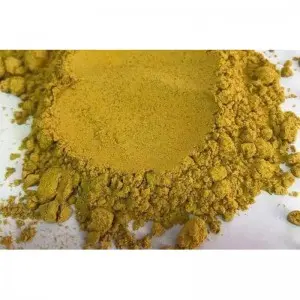Dec . 23, 2024 18:53 Back to list
Purchasing Pollen for Effective Pollination in Cherry Orchards
The Importance of Buying Pollen for Pollination in Cherry Orchards
Pollination is a crucial process in the lifecycle of cherry trees, influencing not only fruit yield but also the quality of cherries produced. While many cherry orchards rely on natural pollinators like bees, there are circumstances where artificial pollination methods, including the purchase of pollen, can significantly enhance the productivity of cherry orchards. In this article, we will explore the reasons why cherry orchard owners should consider buying pollen for pollination and how it can impact their harvest.
The Role of Pollination in Cherry Cultivation
Pollination is the transfer of pollen from the male part of a flower to the female part, enabling fertilization and subsequent fruit development. Cherry trees are generally categorized as self-pollinating or cross-pollinating. While self-pollinating varieties can produce fruit without the aid of other trees, cross-pollinating varieties require pollen from a different cherry tree to set fruit effectively. The presence of compatible pollen is vital for ensuring a diverse genetic pool and reducing the risk of poor fruit set.
Challenges in Natural Pollination
Several factors can hinder natural pollination in cherry orchards, leading to lower yields. Weather conditions, such as rain and wind, can negatively impact bee activity. Furthermore, the declining populations of pollinators due to habitat loss, pesticides, and diseases pose a significant challenge. As a result, relying solely on natural pollination may not be sufficient, especially for the more delicate cherry blossoms that require specific pollination conditions.
Benefits of Buying Pollen
1. Enhanced Pollination Purchasing high-quality pollen from well-established sources ensures that the pollen is viable and effective for pollination. This is particularly beneficial for orchards that contain cross-pollinating varieties, where pollen from a compatible variety is essential. By introducing optimal pollen, orchard managers can improve the chances of successful fertilization.
2. Controlled Pollination By procuring pollen, cherry growers can exert more control over the pollination process. This approach allows for strategic planning, such as timing the application of pollen with respect to when the cherry blossoms are in full bloom. This precision can lead to higher fruit set rates and better-quality fruit.
3. Genetic Diversity Buying pollen from various cherry cultivars can enhance genetic diversity within the orchard. This biodiversity not only improves fruit quality but also increases the resilience of the trees against pests and diseases. A diverse genetic pool can result in cherries that are not only tastier but also more robust in varying environmental conditions.
buy pollen for pollination in cherry orchard

4. Mitigating Risk For orchardists in areas affected by inconsistent pollinator populations or poor weather conditions, buying pollen serves as a safety net. It ensures that they can still achieve satisfactory yield levels despite potential setbacks from natural factors. This risk mitigation strategy is invaluable for maintaining financial stability in cherry production.
Best Practices for Using Purchased Pollen
To make the most out of purchased pollen, orchard owners should consider several best practices
- Source Reliable Suppliers It is crucial to buy pollen from reputable suppliers who specialize in pollination services. They should provide clear information regarding the origin of the pollen, its viability, and compatibility with the selected cherry cultivars.
- Timing is Key Plan the application of pollen according to the flowering schedules of the cherry trees. A well-timed application can make a significant difference in fruit set rates.
- Application Techniques Explore various methods for applying pollen, such as using brushes, air compressors, or even manual methods, ensuring that the pollen reaches the stigma of the flowers effectively.
- Monitor Results After applying the pollen, it is essential to monitor the trees for successful fruit set and adjust future pollination strategies based on observed results.
Conclusion
In summary, while cherry orchards can benefit from natural pollination, purchasing pollen offers a strategic advantage in enhancing fruit yield and quality. By mitigating risks associated with environmental factors and declining pollinator populations, growers can bolster their cherry production and ensure the sustainability of their orchards. As the demand for high-quality cherries continues to grow, investing in proper pollination strategies, including the purchase of pollen, is more important than ever for successful cherry farming.
-
Plant Pollen Analysis with GPT-4 Turbo AI Technology
NewsAug.04,2025
-
AI-Powered Plant Pollen Analysis Using GPT-4 Turbo
NewsAug.03,2025
-
Plant Pollen Analysis: Fast & Accurate with GPT-4 Turbo
NewsAug.02,2025
-
KiwiPollen with GPT-4 Turbo: AI Health Supplement Boost
NewsAug.01,2025
-
Pollen Peach Tree AI Management with GPT-4-Turbo
NewsJul.31,2025
-
Eco Fruit Paper Bags for Peak Freshness | Durability Focused
NewsJul.31,2025